
Family Guy **spoilers** highlight the problem of the web ruining TV
***Warning! There are no spoilers ahead!***
Whether you're a fan of Family Guy or not, you can’t help but have heard that there has been a big storyline -- there was no need to seek out the news, you could just sit back, let it wash over you and absorb it by osmosis. I love Family Guy and I'll admit to getting seriously pissed off at a friend of mine who spilled the beans on Facebook. No warnings, he just straight out announced what had happened in the show. What a bastard! But he wasn't the only one.

The most popular stories on BetaNews this past week -- November 10-16
It would be a strange week if Google didn’t steal a few headlines, and this week saw the introduction of new quick actions to Gmail as well as the launch of a series of online tools to help with the aftermath of the Philippines typhoon. Changes were also made to attachments in Gmail so it is now possible to download files directly to Google Drive. After the launch of the Nexus 5 -- which Brian was not blown away by -- Google also started to roll out Android 4.4 to Nexus tablets -- Mihaita was on hand with a guide to manually upgrading for anyone who did not want to wait for the OTA update to arrive. The news wasn't so good for the Chromebook 11 which was taken off sale after problems with overheating chargers. Google won a court battle after a judge ruled that the scanning of books is not illegal.
This week it was revealed that while BitTorrent still accounts for a large proportion of web traffic, and usage has actually increased in Europe, in the States there has been a drop in traffic. Anyone who seeks entertainment through other channels will be pleased by the fact that Roku streaming boxes can now be used to access Disney and ESPN channels. The Netflix channel was also updated with a new look.

Data on a plane gets the greenlight -- European Commission likes the idea of in-flight Facebooking
Following the lead of US airlines, the European Commission gives the go-ahead for the use of 3G and 4G services during flights. The Commission is permitting the use of UMTS and LTE data connections on aircraft above altitudes of 3,000 meters in the European Union (EU). Up until now, only 2G (GSM) usage has been allowed and the decision paves the way for passengers to make use of high speed data connections, although the decision about whether to permit this on individual flights lies with airlines.
The Commission's announcement makes it clear that the decision does not translate into an automatic right for passengers to use data connections, at least partly because aircraft need to be adapted.
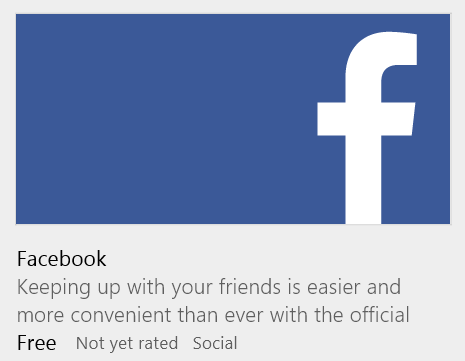
Microsoft announces Facebook Login support for Windows 8.1 and Windows Phone 8 apps
It took Microsoft a while to persuade Facebook to produce an official app for Windows 8, but having finally got the social network onboard, the software giant is looking to tighten the ties further still.
The newly announced Facebook Login APIs on Windows 8/8.1 and Windows Phone 8 will allow developers to create apps that can access a user’s Facebook profile, and make it possible to share content, and post comments in-app, and also find friends to play games with. Make no mistake, with more than one billion people using Facebook to connect and share, this is a hugely important development for Microsoft.

Facebook and Microsoft join forces to make the Internet a safer place
The Internet Bug Bounty program is the latest initiative that can be used by hackers, security experts and anyone with time on their hands to reap rewards by uncovering security problems.
This time, however, it is not an individual app or website that's the subject of the program, but the entire Internet. It is a wide-reaching program which has the backing of Facebook and Microsoft; both companies with a vested interested in making the Internet safer.

[Updated] Twitter starts trading on NYSE -- company valued at $18.2bn, shares rocket from $26 to $45
Today Twitter makes its debut on the New York Stock Exchange (NYSE). In typical Twitter style, the company announced its share price via tweet, ending weeks of speculation about the price point that would be decided upon.
Rather than the anticipated $15 to $20, the IPO (Initial Public Offering) of 70 million shares are up for grabs priced at $26 each -- effectively valuing the company at $18.2 billion.
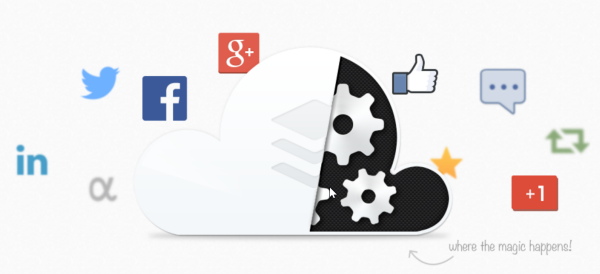
[Update -- fixed!] Social sharing service Buffer is hacked -- temporarily takes itself offline
The latest web service to fall victim to a hack attack is Buffer, the social sharing tool that can be used to schedule posts to multiple social networks. Although it looks as though customers' passwords and billing details are safe, the problem was noticed late Saturday morning when spam type posts started to appear on users' Facebook and Twitter accounts. The Buffer team has been quick to take action and notified users via Facebook.
Buffer co-founder Leo Widrich posted saying "hey everyone! We greatly apologize for this big mess we've created. Buffer has been hacked." Shortly after this Facebook postings were disabled in a bid to stop the spread of spam and Buffer assured users that "We're continuing to work on this and trying to investigate and fix".
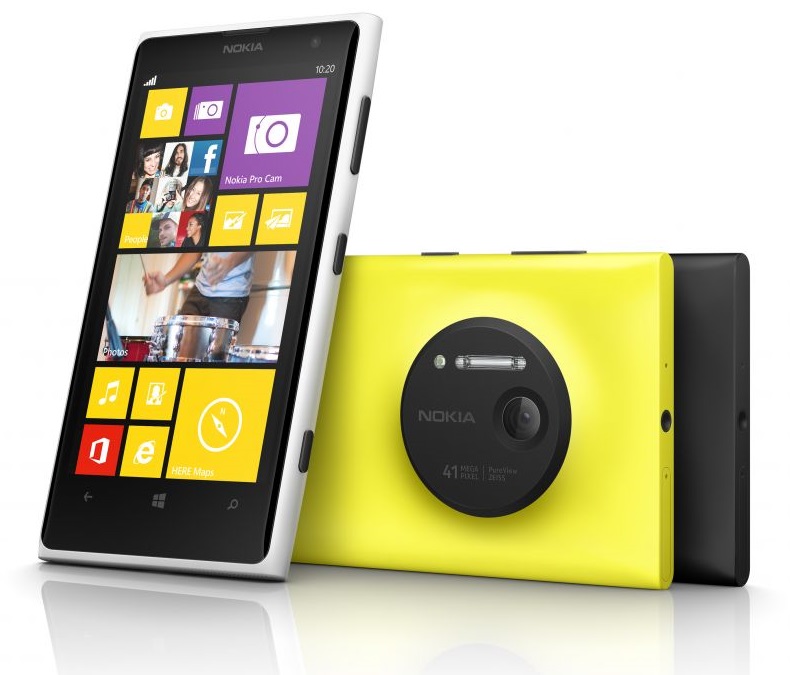
10 reasons why you should consider Windows Phone
With Android handsets and iPhones taking the lion's share of the smartphone market, Windows Phone is quite often overlooked by most consumers in their purchasing decisions. The popularity, or lack thereof, of devices running Microsoft's mobile OS likely plays an important part but it also detracts folks from getting the smartphone that may be right for them. Ask yourselves how many of your acquaintances have been in this position.
Many do not even take Windows Phone into consideration and the ones that do easily find a couple of reasons to dismiss the platform and jump on the Android or iPhone bandwagon. Yes, Windows Phone may not be the right answer for everyone but it might be for more people than naysayers think. And I have got 10 good reasons why consumers should give Windows Phone a chance.

Facebook releases official app for Windows 8.1
Facebook fans running Microsoft's tiled OS need no longer turn to third party solutions -- the official Facebook app is now available in the Windows Store.
It has been a very long time coming, but the social network finally has its own official app, arriving just in time for the release of Windows 8.1. The app has the look and feel of Modern UI apps and includes a live tile that is used to display updates.

Facebook acquires mobile data compression firm Onavo, announces Android alpha program
It looks as though Facebook is trying to help reduce the costs of using the social network on the move with its acquisition of Onavo. Onavo specializes in mobile data compression and data usage tracking, with a goal of helping people use mobile data more efficiently. The company has an office in Tel-Aviv, and this is to be turned into Facebook's Israeli office.
The acquisition comes a couple of months after Mark Zuckerberg launched Internet.org with a view to making the internet available to a larger number of people around the world. Onavo joining forces with Facebook is not unrelated, and the company says it is "eager to take the next step and make an even bigger impact by supporting Facebook's mission to connect the world".
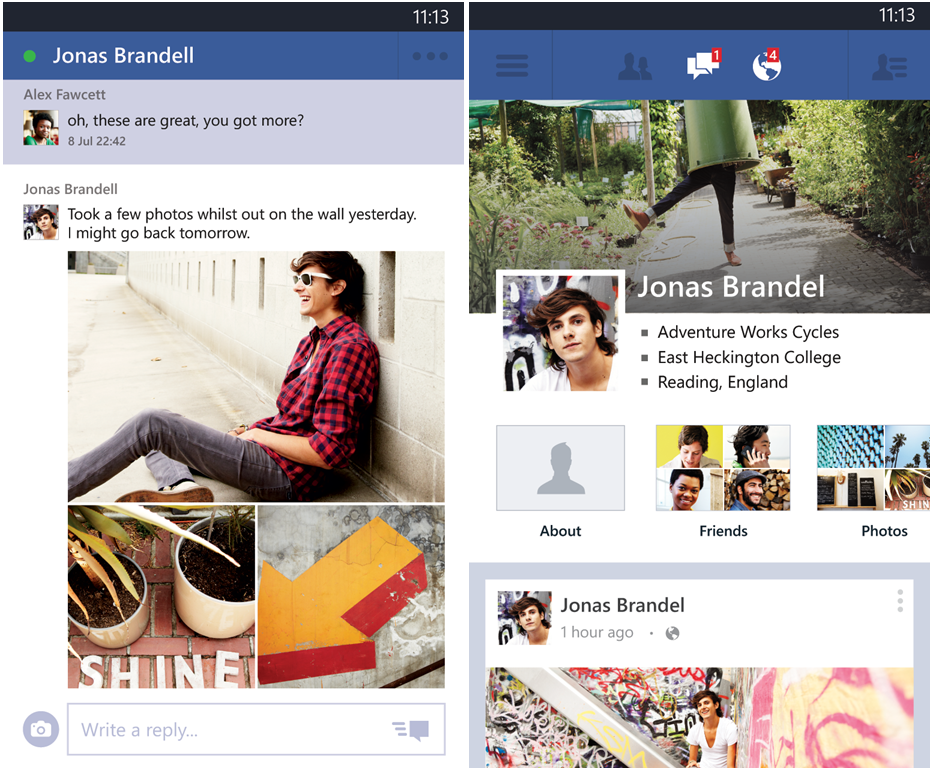
Facebook 5.1 for Windows Phone 8 supports more languages, adds anti-social features
My first contact with Microsoft's homebrew Facebook app for Windows Phone 8 revealed one of the least desirable social experiences that a smartphone user can have on any modern mobile platform. The first iterations of the company's offering were terrible, but luckily things started to pick up after the beta version that arrived in late-April.
Microsoft released a couple of major updates since then, bringing the Facebook experience on Windows Phone 8 to a decent level of usability. Some oversights can still be pointed out, such as the lack of a built-in security code generator but, generally speaking, all the important bits are there. And, today, Microsoft issued another update which brings the version number to 5.1. Let's take a look at what's new.

British children want tablets, shun social networks
According to a new report by the UK media regulator Ofcom, tablets are becoming the must have device for children, displacing the smartphone for younger age groups.
Around a quarter of children aged 12-15 (26 percent) and 18 percent aged 8-11 now have their own tablet computer, while household ownership of a tablet has more than doubled since 2012 to 51 percent up from 20 percent. Use of a tablet computer at home has tripled among 5-15s since 2012, 42 percent up from 14 percent, whilst a quarter of 3-4s now use a tablet computer at home.
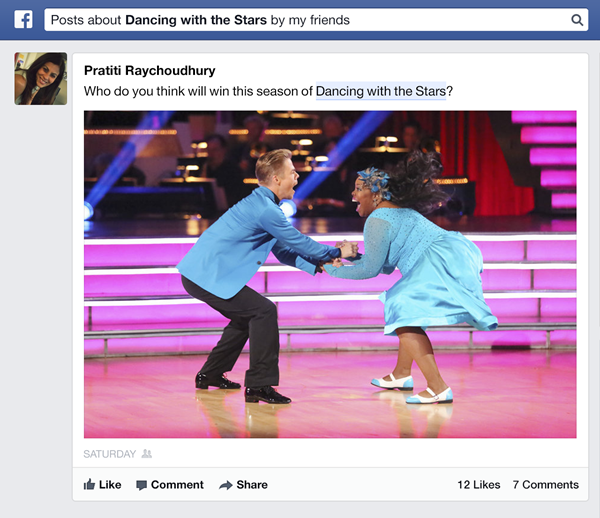
Facebook adds posts, status updates and more to Graph Search
Facebook's Graph Search is being updated to include more information from the social network. The personalized search engine previously allowed for searching of people, photos, places and interests when it was launched back at the beginning of the year. Now posts from you and your friends as well as status updates can be included in searches allowing you to get even more specific about what you're looking for.
Also included in the update is the ability to search for status updates, photo captions, check-ins and comments. There are various ways in which searches can be used to hone in on the content you're looking for, and natural language searching is the order of the day. Want to see the posts your online contacts have made about Microsoft's latest operating system? Just search for "posts about Windows 8.1 by my friends". Results can be limited by date as well, so you could search for "posts about Nexus 7 from the last month".

Facebook makes statuses editable… but is this open to abuse?
It's extremely irritating. You change your Facebook status and immediately notice that you've made a stupid spelling mistake. This could come as a result of a slip of the finger, or your phone's autocorrect might be to blame. You could, of course, simply delete the status update and recreate it without errors. But what about if you've already managed to amass dozens of comments that you don’t want to lose?
Now there's no need to fret because Facebook has made it possible to make edits to statuses. At least this is the case if you're using the Android app or the website -- iOS app users will have to wait a little longer for an update. This is great news! No more stupid typos! No more statuses that sound like they were written by someone with their eyes closed after an evening of heavy drinking! Or is it such great news?

Facebook isn't getting rid of ads, but will make them more relevant to you
Facebook wants to show you more relevant ads. Advertisements are the price we pay for free online content and services, and there are no signs of it vanishing any time soon. Even though this is something internet users have accepted for some time, there are often complaints about the unsuitability of ads. Far fewer people have a problem with seeing adverts for products and services they might genuinely be interested in than those that have no relevance to their lives.
In a blog post Engineering Manager for News Feed Ads, Hong Ge explains that Facebook would like to ensure that the ads that make it into your timeline are more relevant. If you're anything like me, you've probably built up something of a mental filter for "pointless" ads, and maybe even those that might be of interest, but Facebook is keen that you see more ads and that you respond to them positively.
